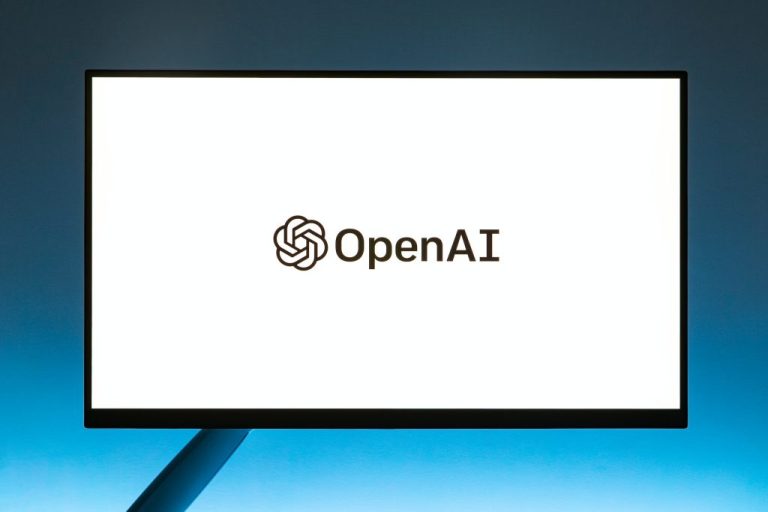Enhancing Generative AI Reliability with Wolfram Research Innovations
Wolfram Research: Injecting Reliability into Generative AI
The enthusiasm surrounding generative AI, particularly with large language models (LLMs) like OpenAI’s ChatGPT, has reached remarkable heights. In fact, over 25% of venture capital invested in US startups this year has been directed towards AI ventures. Furthermore, OpenAI reported at its recent developer conference that ChatGPT is among the fastest-growing services ever.
However, there remains a significant challenge within this space—LLMs have a tendency to “hallucinate,” meaning they generate content that is inaccurate or entirely fabricated. Various estimates suggest that this occurs in about 15%-20% of outputs, with some models, including one from Google, reaching a staggering 27%. Although this issue is concerning, it is often presented in an assertive manner, akin to an overly confident know-it-all at a bar who shares dubious information with certainty.
According to Jon McLoone, Director of Technical Communication and Strategy at Wolfram Research, these inaccuracies are an inherent aspect of LLMs. He notes that the primary design purpose of these tools was not to convey factual information but rather to generate plausible-sounding responses. “It’s not necessary for them to be correct,” McLoone explains. “Their design focuses on generating conversation similar to human speech, rather than ensuring the truthfulness of their claims.” This leads to amusing scenarios where models respond to questions with information that sounds logical but is, in reality, nonsensical.
In light of these challenges, there is a pressing need for a solution to introduce some level of objectivity to this process. Wolfram Research is stepping up to tackle this issue. Earlier this year, the company launched a ChatGPT plugin aimed at enhancing the model’s capabilities by providing access to robust computational resources, precise mathematics, curated knowledge, real-time data, and visualization tools.
This plugin not only acts as an extension for ChatGPT but also has the ability to synthesize code. McLoone elaborates, “It trains the LLM to understand the types of queries that Wolfram|Alpha can address. Our methodology is fundamentally different; we don’t rely on web scraping. Instead, we employ human curators to imbue the data with meaning and structure, which we then enhance with computational capabilities to derive new knowledge.”
Wolfram has long been a proponent of computational technology. With McLoone’s almost three-decade tenure at the company, an emphasis on logical reasoning serves as a key differentiator from statistical AI, which focuses on pattern recognition and classification. Despite appearing at odds, both approaches share a common goal: using computational methods to systematize knowledge and automate its use.
McLoone highlights that while the methods employed have evolved, the fundamental objective remains consistent. The traditional AI framework involved humans formulating behavioral rules, which the machine would then execute. In contrast, generative AI seeks to uncover broader rules about the world, enabling the model to learn and operate effectively.
According to McLoone, as automation advances, it has shifted toward more generalized applications rather than being confined to specific tasks. “At its core, it’s still about executing rules,” McLoone explains. Both traditional and contemporary AI approaches aim to achieve similar objectives, which has fostered collaboration among companies. As OpenAI developed its plugin framework, it reached out to Wolfram to be an initial partner. “With the onset of the LLM revolution, we began analyzing their capabilities,” McLoone shares. “By the time we understood their strengths and weaknesses, OpenAI had already started working on their plugin architecture.”
McLoone notes that OpenAI had a head start, having anticipated these developments for two years. “They were quite aware of these issues,” he adds. At the upcoming AI & Big Data Expo Global in London from November 30 to December 1, McLoone plans to showcase examples of the plugin in action. He emphasizes that there are diverse use cases that can leverage the capabilities of ChatGPT in unstructured language alongside Wolfram’s computational proficiency. One illustrative case is processing unstructured GP medical records, which involves correcting odd transcriptions – like changing ‘peacemaker’ to ‘pacemaker’ – and employing traditional computations to uncover data correlations. “While we focus on chat because it’s revolutionary to converse with computers, LLMs extend beyond just chat,” McLoone states. “They excel with unstructured data.”
What does McLoone envision for the future of LLMs? He anticipates continual incremental enhancements and improved training practices leading to better outcomes, as well as potentially increased speeds thanks to hardware advancements. “The flow of capital tends to dictate architectural shifts,” McLoone observes. However, he suggests that another major transformation on the scale witnessed over the past year is unlikely. This is partly due to prohibitive computing expenses and a potential plateau in terms of training datasets. If copyright challenges impact LLM providers, the size of training datasets may shrink in the future.
In his presentation, McLoone will also focus on the reliability issues associated with LLMs. “They tend to fall short in computational tasks, where the adherence to rules is limited,” he explains. “For tasks requiring the synthesis of new knowledge or handling data-centric computations, traditional computation remains the best route.” Nonetheless, he notes that while responses can vary—particularly due to ChatGPT’s inherent randomness—the combination proves effective provided that clear instructions are given to the LLM. “In my experience, I’ve never seen an LLM actually dispute a fact I’ve provided,” McLoone states. “When the LLM is in control, it might decide not to call on Wolfram and fabricate an answer instead.”
He emphasizes the importance of rigorous prompt engineering: “You need to explicitly instruct it to always utilize the tool for relevant queries.” Conversely, he adds, when computation feeds knowledge into the LLM, the model reliably adheres to provided facts. “It’s akin to a loudmouth at the pub—if you quietly share facts with him, he will confidently present them as his own.”
Wolfram will participate in the AI & Big Data Expo Global. For those interested in learning more about the latest developments in AI and big data from industry leaders, the AI & Big Data Expo will be co-located with the Cyber Security & Cloud Expo and Digital Transformation Week in Amsterdam, California, and London. Explore other upcoming enterprise technology events and webinars powered by TechForge.
Magistral: Mistral AI Challenges Big Tech with Reasoning Model
In a landscape dominated by industry giants, Mistral AI is stepping up to challenge the status quo with its innovative reasoning model. This model aims to enhance decision-making processes in artificial intelligence, providing a fresh perspective on how AI can be harnessed for more effective results.
The AI Blockchain: What Is It Really?
The concept of AI blockchain has generated significant buzz in the tech community. This fusion of artificial intelligence and blockchain technology promises to revolutionize data security and management, paving the way for more transparent and efficient systems.
Apple Opens Core AI Model to Developers Amid Measured WWDC Strategy
At this year’s Worldwide Developers Conference (WWDC), Apple took a significant step by releasing its core AI model to developers. This move illustrates Apple’s commitment to integrating AI into its ecosystem while carefully managing its broader strategy in the tech landscape.
Reddit Sues Anthropic for Scraping User Data to Train AI
Reddit has initiated legal action against Anthropic, accusing the company of unlawfully scraping user data to train its AI models. This lawsuit highlights ongoing debates about data privacy and the ethical use of information in AI development.
Join our Community
Subscribe now to receive all our premium content and latest tech news delivered straight to your inbox.
Popular Articles
The Role of Machine Learning in Enhancing Cloud-Native Container Security: Discover how machine learning is revolutionizing security measures in cloud-native environments. (40,839 views)
Innovative Machine Learning Uses Transforming Business Applications: Explore the groundbreaking applications of machine learning that are reshaping various industries. (14,277 views)
AI and Bots Allegedly Used to Fraudulently Boost Music Streams: Uncover the controversial use of AI in manipulating music streaming figures. (12,125 views)
The Benefits of Partnering with Outsourced Developers: Learn about the advantages of collaborating with external developers to optimize project outcomes. (Space and Sponsored Content)
Latest Insights on Artificial Intelligence and Machine Learning
Machine Learning and Cloud-Native Container Security:
Discover how machine learning is improving security in cloud-native containers. This technology is crucial for safeguarding applications in dynamic cloud environments.
Innovative Machine Learning Applications in Business:
Explore how various industries are implementing innovative machine learning solutions to revolutionize business applications, enhancing efficiency and productivity.
AI and Fraudulent Music Streaming:
An investigation into the alleged use of AI and automated bots to artificially increase music streaming numbers, raising ethical concerns in the music industry.
Outsourced Development Partnerships:
Learn about the advantages of collaborating with outsourced developers for tech projects, particularly in the realm of artificial intelligence.
Recent Updates
Reddit vs. Anthropic:
In recent news, Reddit has filed a lawsuit against Anthropic, accusing the company of scraping user data to enhance its AI systems.
TSMC’s AI Chip Demand:
TSMC has reported a surge in demand for AI chips, amid uncertainties surrounding tariffs during the Trump administration, indicating robust market growth.
OpenAI Expands in South Korea:
OpenAI has opened a new office in South Korea, marking significant growth in its user base in the region, which has become its second-largest paying market.
JavaScript Hook Management
The code snippet presented outlines a comprehensive system designed to manage hooks in JavaScript, specifically for use with the Gravity Forms plugin.
It implements methods for adding, removing, and executing hooks, allowing developers to customize functionality effectively.
The addHook function allows you to register a new hook, while removeHook removes existing hooks based on specified criteria.
Using these hooks enhances extensibility and maintainability, ensuring a more dynamic interaction with user inputs.
Form Data Collection
The form section is designed to collect various data points from users, such as their first name, last name, job title, company name, and email address.
Additionally, it captures the company size and sector, which can impact business insights and analytics significantly.
A dropdown menu for selecting the user’s country is also included, providing a comprehensive list of options that span across the globe.
Submission Permissions
Users are required to acknowledge their agreement with the terms and privacy notice before submitting any information.
This is crucial for compliance with data protection regulations, ensuring that users are aware of how their information will be handled.
Dynamic Form Handling
The script features a dynamic mechanism to handle form submissions through AJAX.
It checks if the submission is a postback and manipulates the DOM accordingly to either display the confirmation message or reload the form.
The use of a spinner during loading provides visual feedback, enhancing the user experience.







